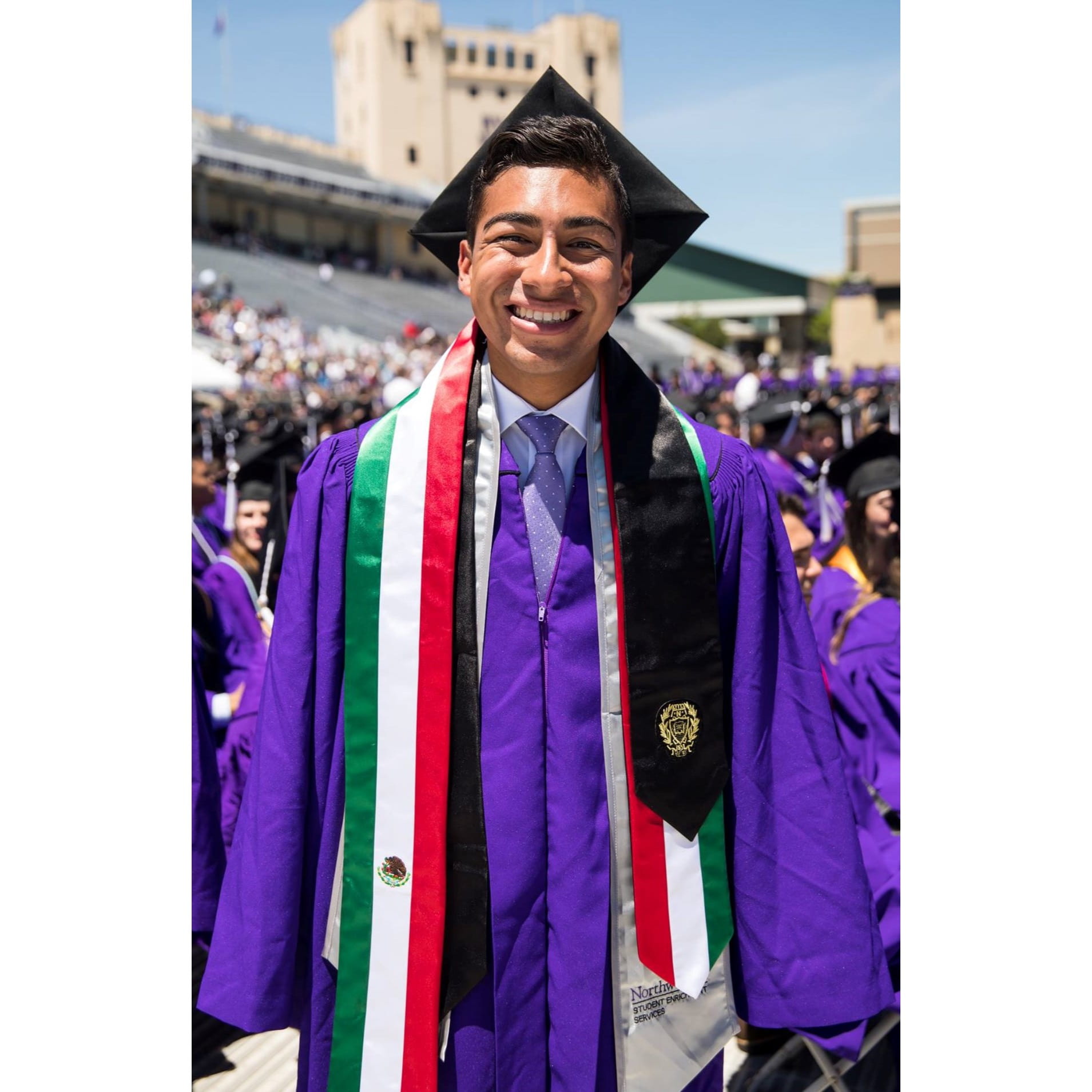Mauricio G. at the 2018 Weinberg College of Arts and Sciences’ Convocation
Photography credits: Justin Barbin Photography
This week, a cohort of colleges committed to access (including Northwestern) will participate in “Coalition Day” to highlight the ways The Coalition for College strives to remove barriers to college access. It got me thinking about access more broadly and how Northwestern works towards this effort.
Back in March of 2016, our University president, Morton Schapiro, announced Northwestern’s goal to have 20% of our first-year class be Pell Grant recipients by 2020; this meant that 1 in 5 students would identify as “low-income.” As a low-income student at the time, I was proud that my community would grow in the coming years. But I also wondered about other ways Northwestern could improve access to my fellow low-income students while meeting this goal in time.
Just over two years (and my 2018 graduation from undergrad!) later, Pell Grant recipients make up 20% of our first-year class. Not only did Northwestern meet its goal two years early in Fall 2018, but the University has significantly increased resources and access to the undergraduate experience for low-income students since I first came to campus five years ago.
So Coalition Day got me thinking, and it also led us to create #AccessNorthwestern, a social media campaign that marks this recent milestone in Northwestern’s commitment to access: 20 days of posts, beginning on May 20, to highlight the ways Northwestern is continuing to remove barriers to college access and success.
As I’ve worked on this campaign, I’ve been reflecting on how I personally experienced, as an applicant and student, the positive impact of this growth in access. When I was applying to college not too long ago, I worried about not only the cost of college but also whether I’d be granted the same opportunities as my peers. I wanted to be able to do things like study abroad, pursue my dream internship, and join any student organization without stressing about expenses or overextending myself by working to fund these undergraduate pursuits. Overall, I didn’t want to feel “different” from my peers because of my socioeconomic status. I didn’t want to get “FOMO” or feel isolated by any potential barriers to fully enjoying my years as Wildcat.
When I arrived on campus, my concerns dissipated because of the resources that came to fruition year after year, and the Northwestern community’s collective care to make this place better for low-income students. The founding of the Student Enrichment Services (SES) office during my first year brought staff on board who fully understood my experiences and continue to advocate and provide resources specifically for low-income students (e.g. winter gear, laptops, grants, graduation regalia).
Throughout my years here, our campus culture has shifted to spread access and awareness across the community: Community Dialogues on how the University can better support low-income and other students; funds for unpaid internships; funds for summer study abroad programs (I participated in a practically fully-funded study abroad program in Berlin after my sophomore year!); events in Chicago (like going to see Broadway Shows for free!); and so much more.
Of course, while we have come a long way as community, we recognize that more work can be done to make Northwestern even more accessible to current and future Wildcats. Thankfully, this progress continues every day, and I’m proud to now shape the conversation as a member of the Admissions team.
I encourage you to follow along with our social media series on Instagram, Snapchat, Twitter, and Facebook; for the next 20 days we’ll be showing you all the ways you can #AccessNorthwestern.
– Post written by Mauricio Gonzalez, WCAS ’18 and Assistant Director of Admission

Lets go Wildcat!
Amazing initiative. I’m a privileged applicant for the Class of 2024, but spots should first and foremost go to those who overcame immense hardship to get where they are.
Truly innovative and amazing program to help even the playing field! Hope to one day work with Northwestern with aid to low income students!
Extremely insightful. Thanks for sharing.
Wow, what a great and thoughtful program.
Wonderful insight into the Northwestern community. I my self am a dedicated worker towards the cause of school dropouts and have taken my extensive research work forward by trying to reduce the drop outs ratios in and around my locality by helping them develop life skills and if possible get back to school. A platform like the Northwestern community is such an ideal stage to take it forward and make it count in many more lives affected due to dropping out of school.
Really look forward to read more and the fall of 2020 when I would be applying for undergrad. what a community you have …..great
An inspiringly progressive view, go Wildcats!
As someone who comes from a low income family, I appreciate that colleges are considering the difficulty that we have with funding our college studies. This campaign is truly amazing, and I hope the support for those with low socioeconomic status continues to increase. Thanks for sharing this story with us!